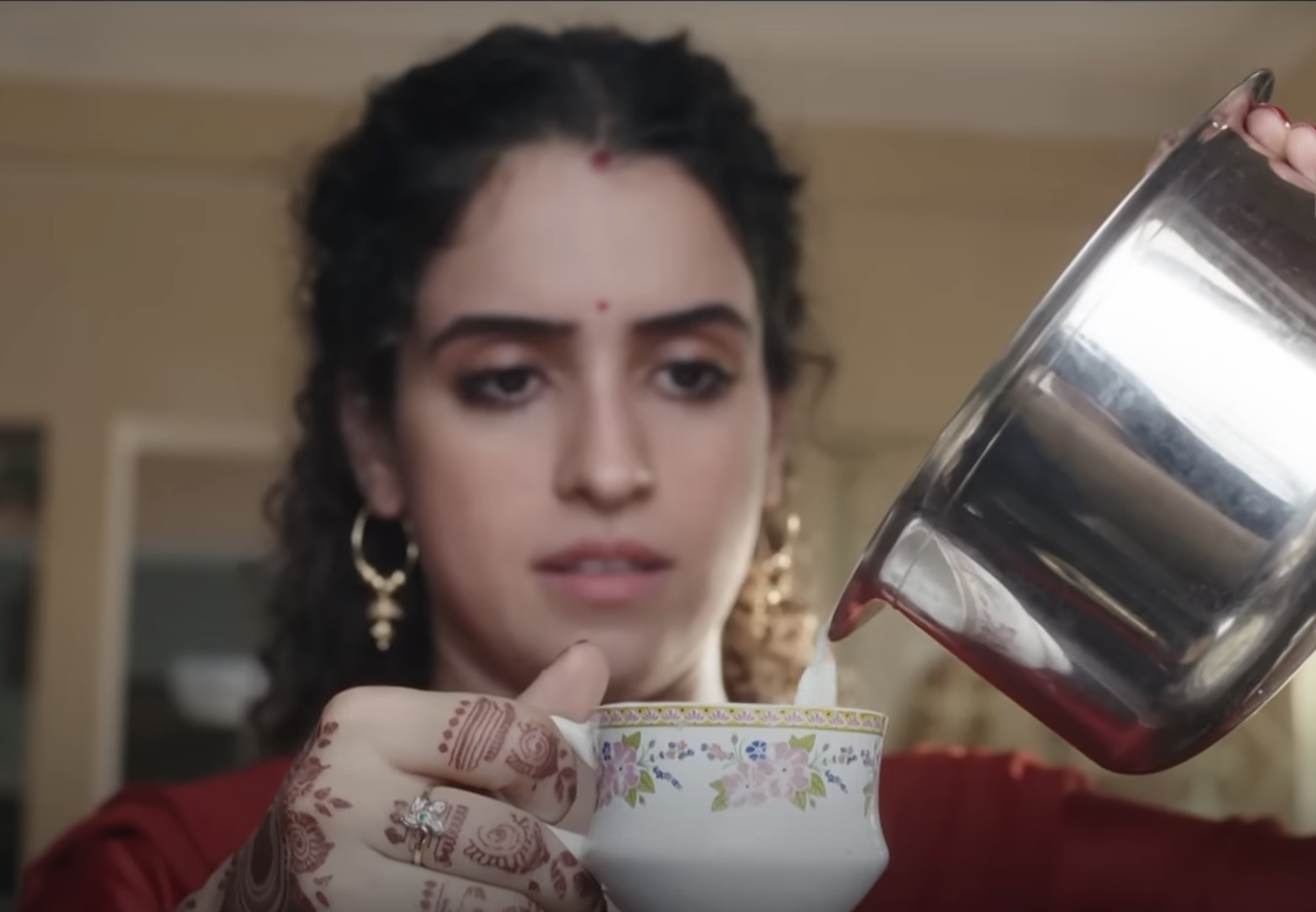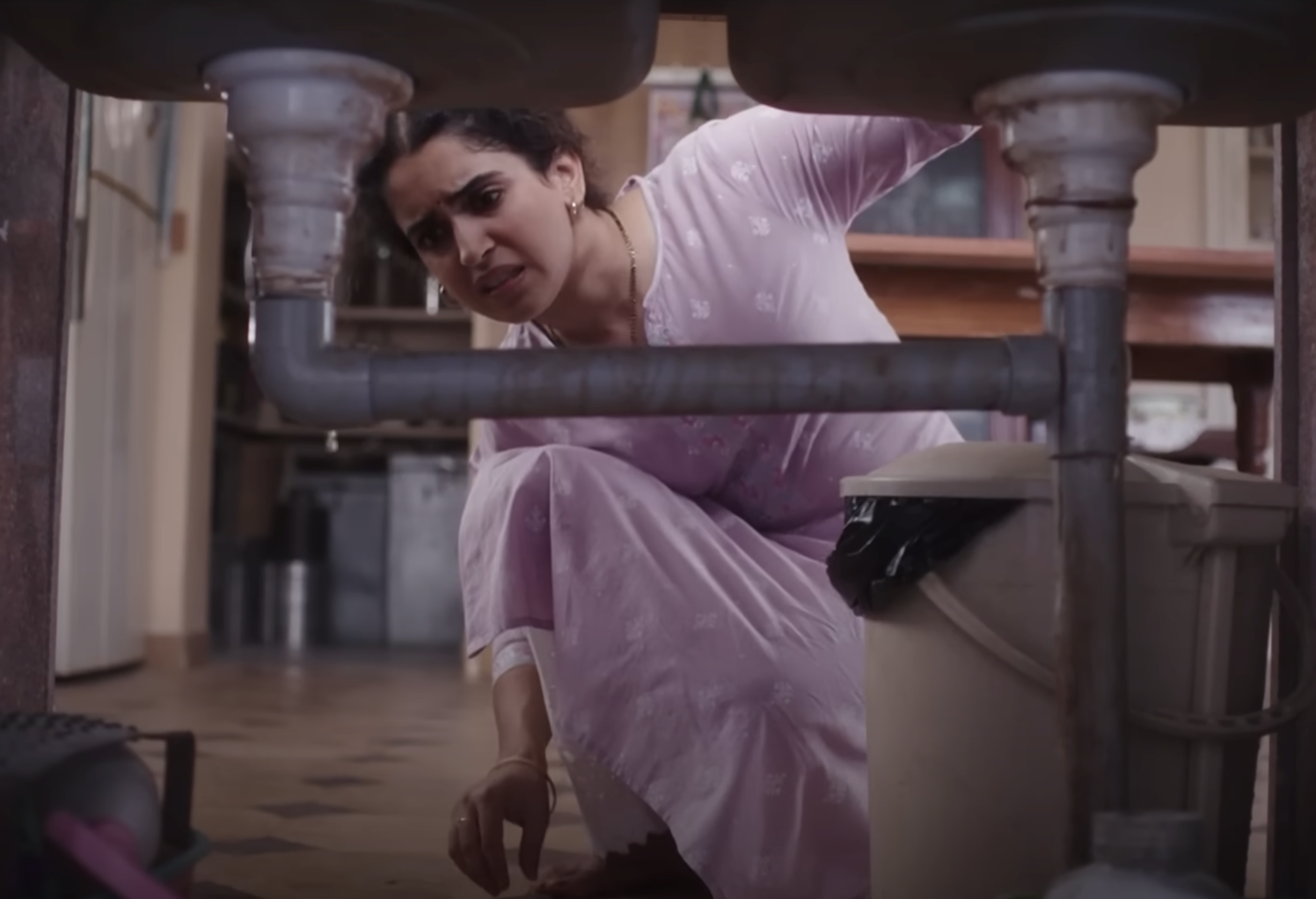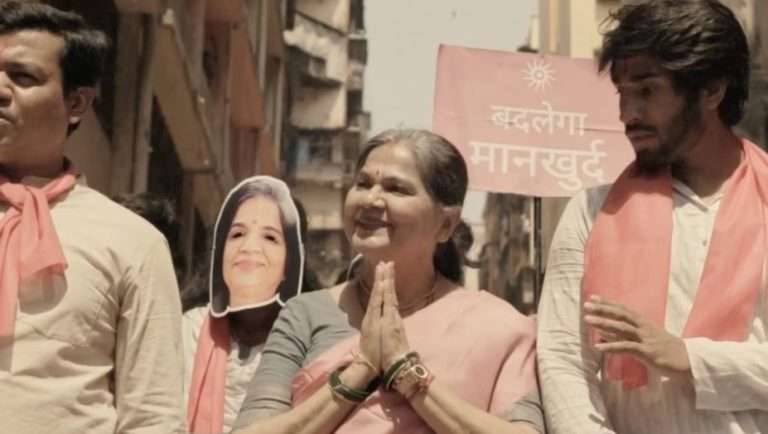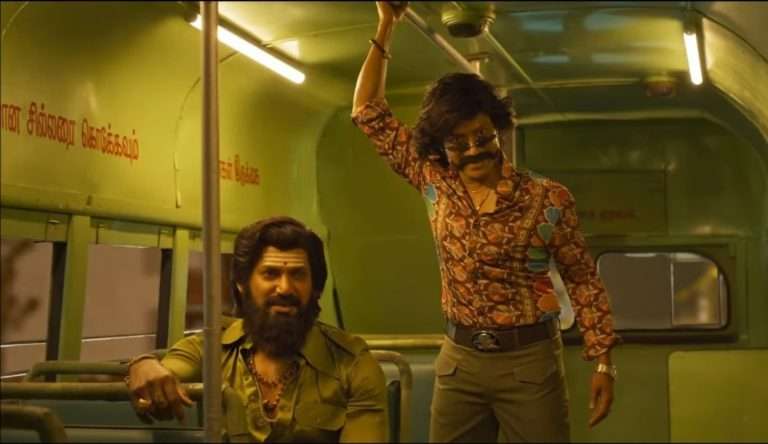Mrs.” (2024), directed by Arati Kadav, is the story of Mrs. Richa Sharma (played by Sanya Malhotra) as she metamorphoses into Richa, a prime number who is unbreakable by the force majeure that life post-marriage in a middle-class house can look like, even in a contemporary Indian setting. Richa is a dancer; she runs her own dance troupe but is quickly married to Diwakar (played by Nishant Dahiya), a gynecologist who runs his own clinic. Soon after, Richa comes to observe the elaborate ordeal that cooking food and serving it to the men of the house looks like.
For example, her mother-in-law uses a sil batta (i.e. a stone mortar and pestle) to prepare green chutney instead of a food processor because her husband is not well disposed towards the use of the latter during cooking. However, it is quickly established that the women of the house only toil and toil away in the kitchen all day while the men wake up, get dressed, eat food, and go about their business all day long until they come back to the dining table again for hot ‘phulkas’. Richa, who is not equipped with either the love or passion for cooking, out of courtesy, decides to step into her mother-in-law’s role for a few months. And all hell eventually breaks loose. “Mrs.” (2024) does a fantastic job of drawing attention to one of the most invisible modes of labor among homemakers: cooking.

The film will have you hooked right from the opening credit sequence, where Richa’s dance performance is interspersed with another woman, possibly her mother, cooking up a feast for guests in the kitchen. Richa’s steps are clean, coordinated with the rest of her troupe, and moving with rhythm and joy. On the other hand, we only see the neat, methodical movement of experienced hands in the kitchen; the facelessness of these hands is unsettling enough and a stark contrast to Richa’s face full of glee, almost ominous in hinting that these faceless hands will soon become Richa’s reality.
As the film progresses, you cannot help but praise the nuances that Anu Singh Choudhary parcels into the story based on Jeo Baby’s “The Great Indian Kitchen” – the new TV that comes with the new bride to the Sharma household, the way a menstruating woman is kept at arm’s length from the kitchen, the blunt hypocrisy of Diwakar’s family planning, etc. The (occasional) house help’s daughter, who lingers around Richa like a bee around a flower, at times seems more knowledgeable about the customs that married women are to follow, indicating how the patriarchal brainwashing is no less than a militant organization when it comes to targeting young, impressionable minds. The truths leave you at the edge of your seat, frustrated.
Also Read: 15 Great Movies About Food That You Need To Watch
At one point in the film, when Richa wants to step out to interview for a new job role as a dance teacher in a nearby academy, her father-in-law states that even his wife, Richa’s mother-in-law, is a PhD in Economics, but after marriage, she embraced the family life and kitchen and as a result, her children – Diwakar and his sister – are as well settled in life as they. I paused at that moment to briefly ponder upon the fates of women I know – my mother and aunts – and how this sentence feels like a universal tonic fed by the patriarchal forces governing society to women of all generations. “Mrs.” (2024), I sincerely hope, will make everyone watching realize the same.
At the center of the movie stands Sanya Malhotra, who holds the film and her character’s reins in firm hands. She melts in fresh love with her husband and is clearly confused when he first doesn’t pay heed to her consent while lovemaking. When day after day, her body is treated mechanically for bearing a child, her face wilts. Love has faded, replaced only by a faint hope for respect. “Mrs.” (2024) may not be screaming about marital rape in your face, but it manages to leave you feeling the chills.

In a candid conversation with High On Films a few days ago, Malhotra also confessed that she hopes this movie will draw some limelight to marital rape, urging more storytellers and directors to capture the pathos of women afterward left grappling for their sense of self. One can only hope, after all, that art will jolt awake the conversation about marital rape in India, where it is still not a statutory crime under the IPC.
In my opinion, “Mrs.” (2024) could do without the final 10 minutes. Yet, it is not a story that is stretched out so badly that it loses its audience. It makes a point through a tale that is as old as time. It urges you to redefine your relationship with food and sometimes shift your gaze from the food to its maker itself. After all, cooking is a life skill. It leaves you wondering, how long till characters like Richa become non-relatable for a generation of women? Your silence is your answer and this film’s biggest victory.









